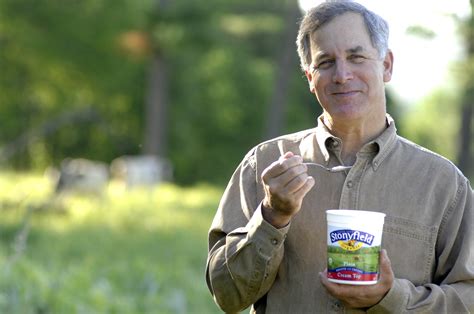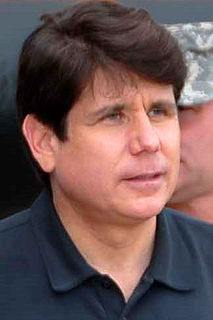A Quote by Denise Morrison
At Campbell's, we're listening to consumers. We recognize that real and healthier food is better for our consumers and our business. Our goal is to be the leading health and well-being food company.
Related Quotes
The people who benefit from this state of affairs have been at pains to convince us that the agricultural practices and policies that have almost annihilated the farming population have greatly benefited the population of food consumers. But more and more consumers are now becoming aware that our supposed abundance of cheap and healthful food is to a considerable extent illusory.
Organic Oreos are not a health food. When Coca-Cola begins selling organic Coke, as it surely will, the company will have struck a blow for the environment perhaps, but not for our health. Most consumers automatically assume that the word "organic" is synomymous with health, but it makes no difference to your insulin metabolism if the high-fructose corn syrup in your soda is organic.
Combating climate change is absolutely critical to the future of our company,Green Cooler customers, consumers-and our world. I believe all of us need to take action now. PepsiCo has already taken actions in our operations and throughout our supply chain to 'future- proof' our company-all of which deliver real cost savings, mitigate risk, protect our license to operate, and create resilience in our supply chain.
If we focus on our health, including our inner health, our self-esteem, and how we look at ourselves and our confidence level, we'll tend to be healthier people anyway, we'll tend to make better choices for our lives, for our bodies, we'll always be trying to learn more, and get better as time goes on.
Cooking is a holistic process of planning, preparing, dining and sharing food. I place food at the center of our humanity, as it nourishes not only our physical bodies but also our emotional and spiritual lives. Food is truly a cultural phenomenon that informs our traditions and our relationship with the earth. I genuinely believe that food connects us all.
Because we haven’t been taught to appreciate and love ourselves in this way, we don’t feel like we deserve self-care and pleasure. Instead, we cling to our To Do lists and sacrifice our health and well-being for the sake of others. Then, when we feel deprived of our basic human need for relaxation and enjoyment, we turn to food as our sole source of pleasure. When we then try to deprive ourselves of food through dieting, we deny the last bit of pleasure we have in our lives. And that strategy never works!
Is it just a coincidence that as the portion of our income spent on food has declined, spending on health care has soared? In 1960 Americans spent 17.5 percent of their income on food and 5.2 percent of national income on health care. Since then, those numbers have flipped: Spending on food has fallen to 9.9 percent, while spending on heath care has climbed to 16 percent of national income. I have to think that by spending a little more on healthier food we could reduce the amount we have to spend on heath care.


































